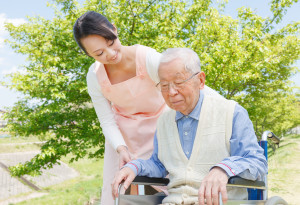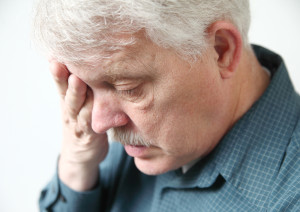Pulmonary Arterial Hypertension is a rare a debilitating disease. People with the disease have “good days” and “bad days” and as the disease progresses the frequency of good days becomes less and less. Behind every patient that successfully navigates daily life with PAH is at least one if not a team of amazing caregivers. Caregivers help coordinate rides to doctors’ appointments, keep inventory and order complicated medications and supplies, sit in the hospital for long hours keeping their loved one company during testing or admissions, provide low salt meals, and provide emotional support for the endless ups and downs of living with PAH.
Caregiver Burnout
 Providing constant emotional and or physical support to a loved one with pulmonary arterial hypertension is overwhelming. Many caregivers jump right into the role without taking time to assess their own feelings about their loved ones diagnosis. Caregivers often feel guilty if they feel sad or depressed and so they focus solely on the person they are providing care for often losing their individual identity over time. Neglecting ones’ own physical, emotional, and spiritual needs to care for another often leads to caregiver burnout. Below are 5 signs that you may be suffering from burnout and tips for avoiding future burnout.
Providing constant emotional and or physical support to a loved one with pulmonary arterial hypertension is overwhelming. Many caregivers jump right into the role without taking time to assess their own feelings about their loved ones diagnosis. Caregivers often feel guilty if they feel sad or depressed and so they focus solely on the person they are providing care for often losing their individual identity over time. Neglecting ones’ own physical, emotional, and spiritual needs to care for another often leads to caregiver burnout. Below are 5 signs that you may be suffering from burnout and tips for avoiding future burnout.
5 Signs of Caregiver Burnout
- Losing your temper easily or feeling like you are on an emotional roller coaster every day. Feeling resentful towards the person you are providing care for.
- You are sick all of time. It feels like you catch every bug that is going around.
- Lost track of friends. All of your time, energy, and focus is placed on the person you are caring for making it difficult to be available to friends.
- Your golf clubs or running shoes are dusty. You haven’t spent time participating in activities or hobbies that once brought you joy.
- You are drinking, smoking, or eating more than usual. Using unhealthy habits to cope with the increased stress.
5 Tips for Avoiding Caregiver Burnout
- Ask for help. Remember the proverb, it takes a village to raise a child, well it takes more than one person to successfully care for a pulmonary arterial hypertension patient. Click here to be connected to three awesome resources for caregivers that will make it easier to organize and ask for the help you need.
- Say “yes” when someone offers to help. Accepting help can be difficult. You must trust that people offer help because they want to not because they feel obligated. Accepting help will require that you give up some control and let others help in ways they can not necessarily the way you do.
- Schedule some time for yourself every day. Participate in activities that you enjoy, call a friend you haven’t spoken to in a while, take a long bath, or read a good book. Just take time to do something that will bring you joy.
- Take care of your health. Maintain healthy sleeping and eating habits. Be active every day. You won’t be able to care for anyone if you let yourself get run down and sick.
- Join a caregiver support group. There are email, phone, and live support groups offered just for caregivers. Ask the pulmonary hypertension physician your loved one sees for ways to get connected or click here to see resources available through the Pulmonary Hypertension Association. Support groups provide excellent opportunities to connect with people that are experiencing similar stresses in their lives.
